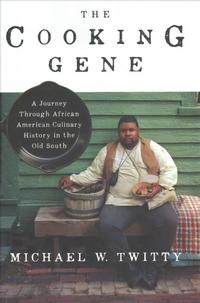In Jacqueline Woodson’s books, cooking traces the roots and routes of families and memories. The Historical Society of Pennsylvania (HSP) joined with the Free Library’s Culinary Literacy Center this week to celebrate the historical flavors of these roots and routes.
Patrick Glennon, communications officer at HSP, took the time to share some historical cooking connections with us.
Everyone loves a good cookbook.
Cookbooks serve a practical purpose in our daily lives while conveying scientific and artistic knowledge, from the impact of different cooking methods to the perfect plating technique.
Among the ingredient lists and measurements, you can also trace U.S. cultural histories.
The Historical Society of Pennsylvania (HSP) possesses a number of fascinating cookbooks in its collection that chart the development of the culinary arts in the U.S. and document the rich variety of cultural influences that have made U.S. cooking so distinct. From Martha Washington’s personal cookbook to Ellen Emlen’s instructive Civil War-era collection of recipes, HSP is home to many culinary-related materials that connect the public with its heritage through food. Just last week, the organization added scores of new cookbooks to its collections, including one dating from the 1600s.
The exciting historical and cultural nature of cooking is why HSP was pleased to co-sponsor two events with the Free Library's Culinary Literacy Center (CLC) as part of the One Book, One Philadelphia season, both featuring acclaimed chef and historian Michael W. Twitty.
Twitty’s work demonstrates that cooking is both fun and educational. His Country Captain demonstration at the CLC underscored the wide array of cultural influences that informed African American cooking in the South, where South Asian curries intersected with the common ingredients and cooking styles of plantation kitchens. Twitty also spoke about the food traditions that inspire contemporary African American cuisines, joined by scholar Dr. Jessica Harris and local chef and food writer Valerie Erwin.
During the Great Migration—when approximately 6 million African Americans relocated from the South to urban centers in the Northeast, the Midwest, and the West—highly original cuisines emerged from the cultural fusion and traveled across the country, influencing the cooking practices and tastes of inhabitants from Philadelphia to Seattle.
Exploring the origins of U.S. cooking reveal how the nation’s history truly belongs to all of us. The diversity that led to the development of such imaginative and delicious fare represents the vibrancy and relevance of history today. What better way is there to make history come alive, after all, than reprising an appetizing meal drawn from our collective past?
**There's one week left of One Book! Check back next #OneBookWednesday for some final One Book food-for-thought and reflection. For a full list of events still to come, visit our online calendar.**
Have a question for Free Library staff? Please submit it to our Ask a Librarian page and receive a response within two business days.


